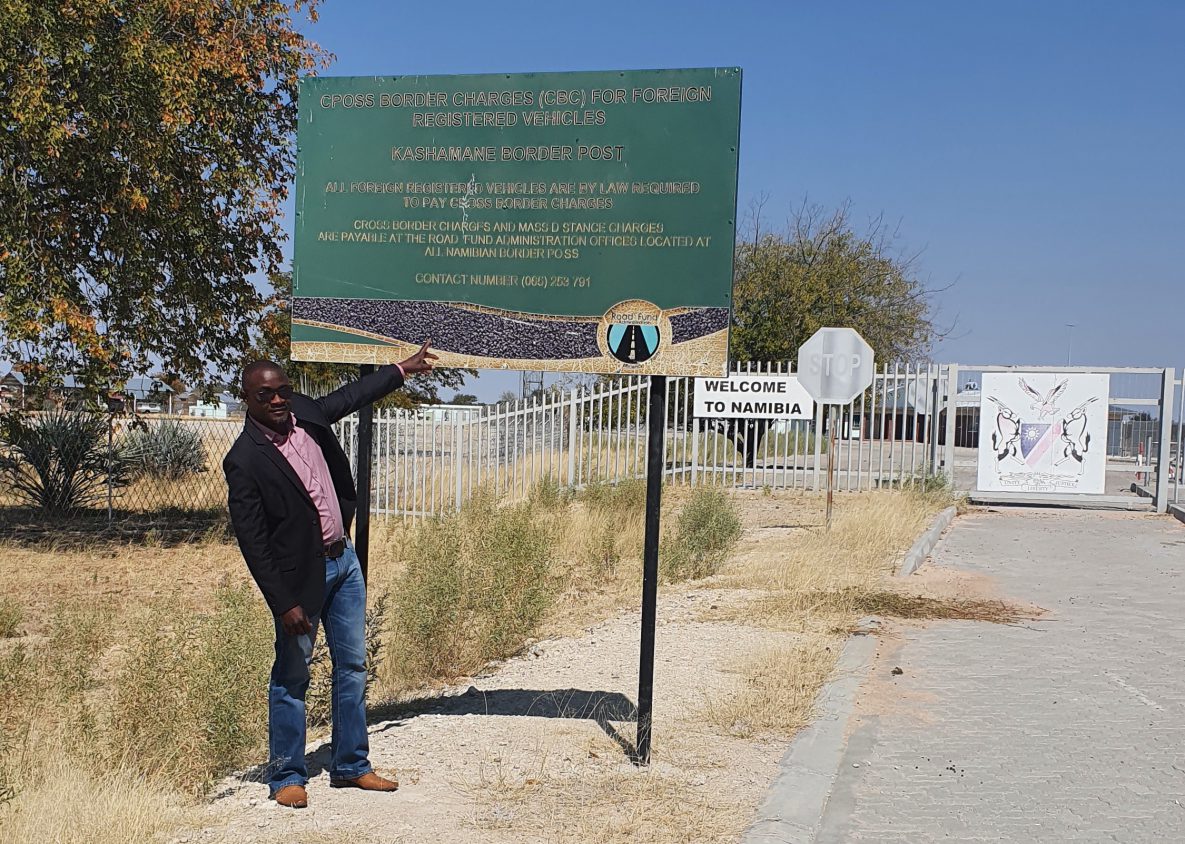When borders are shut: Providing ART medicine to all patients during the COVID-19 pandemic

The Alphandeka border post, a site currently used by the Ministry of Health to provide mobile healthcare services.
Namibia shares a 1,425 km border with Angola, the majority of which is open between the two countries. People cross the border to visit family and friends, and some people who visit Namibia also access services including healthcare. Namibian health facilities provide HIV care and treatment free of charge to any patient, whether or not the person is a Namibian citizen. This strategy helps protect communities in Namibia and neighboring countries from the continued spread of HIV. People with HIV can take antiretroviral treatment (ART) every day to prevent spreading the virus.
When the COVID-19 pandemic took hold of the world, Namibia, like many other countries, closed its borders to help prevent the spread of COVID-19 into communities. This caused many challenges, including preventing people with HIV in Angola from getting the care and treatment they would have usually accessed in Namibia. Without medicine, these patients will become sick and might start to spread HIV to others; for example, if a pregnant woman is HIV-positive and stops taking her HIV medicine, the risk of mother-to-child transmission is greatly increased.
With support from the U.S. Centers for Disease Control and Prevention country office in Namibia’s (CDC Namibia) funding through the President’s Emergency Fund for Aids Relief (PEPFAR), the Ministry of Health and Social Services (MoHSS) quickly put in place new arrangements to ensure that these patients could continue to receive their medicine.
It was critical that these patients were not lost from care.
“It was critical that these patients were not lost from care. It was an important milestone when the Namibian government committed to offering free HIV services to all patients, and it would be devastating to lose these patients after we have come so far with them,” said Mrs. Nitschke, Director of the Directorate of Special Programmes at the MoHSS.
Healthcare teams in the regions bordering Angola quickly came up with a solution: to work with officials from the Ministry of Safety and Security at border posts to move medicines to the borders when patients could not get through. As a result, healthcare workers from the nearby clinics have been regularly visiting the official border crossing points and other newly established temporary sites. With the help of the police officers at the post, they collect the health passports from the Angolan patients and provide the necessary medicines.

Toubed Mbwale, Field Officer, at Omuvelowashamane Border Post outreach point where the Ministry of Health is providing mobile healthcare services.
Impressive results at border health outreach points
Additionally, outreach points at the border have been set up to provide ART and other essential health services. At some of the busiest border points, MoHSS staff make a daily visit to provide medicines. At some of the quieter border crossing points, the healthcare staff visit twice a month. Behind the scenes, many discussions were held with regional government and Ministries in the regions to make this process as smooth as possible. The result has been impressive. Between the months of March to June, over 3,600 patients who would otherwise have missed out on treatment, received medicine refills that will last them for two to six months. This reduces the burden of frequent return visits for refills.
The border crossing is the ideal place for a health outreach point as people can get the services they need without having to travel long distances.
“Providing a permanent structure will make all the difference to the comfort of the patients and the healthcare workers providing the services,” said Eliphas Hatutale, CDC Namibia Field Office Coordinator. “The border crossing is the ideal place for a health outreach point as people can get the services they need without having to travel long distances.”
Expanding and adapting healthcare outreach points
With the provision of permanent structures at four sites, the Ministry will be able to expand the range of services provided at these outreach points to include general primary healthcare services such as vaccinations and the provision of other chronic medicine, and provide a greater range of HIV prevention, care and treatment services.
“This is another example of how the challenges presented by the COVID-19 pandemic have resulted in new methods of healthcare service delivery that will continue after the epidemic ends,” said CDC Namibia Country Director, Dr. Eric Dziuban. “The example of the border outreach points also highlight how important collaboration is; the results we have achieved here are due to Ministries, and countries, working together at national and regional levels to improve patient care. It is a job well done.”